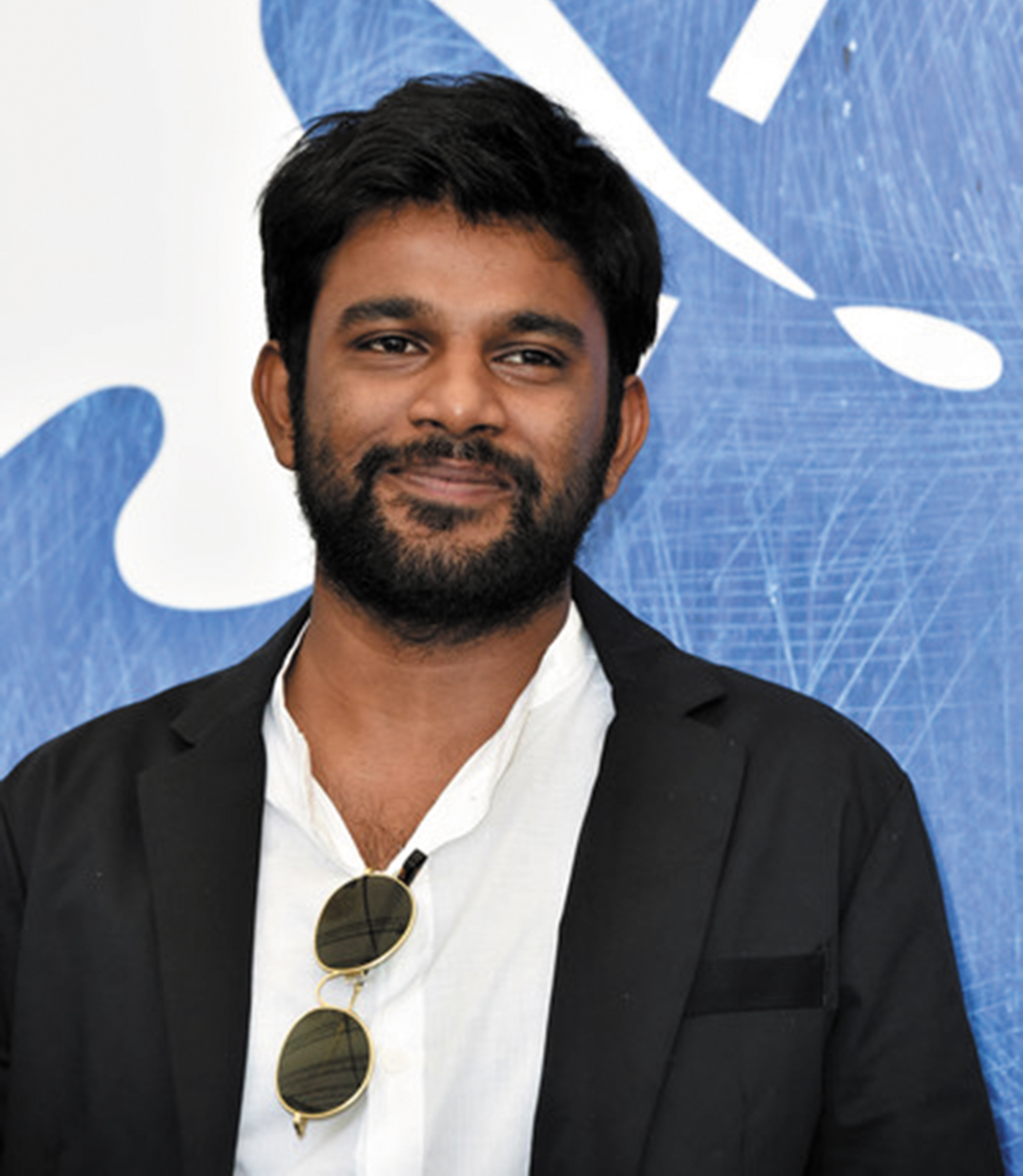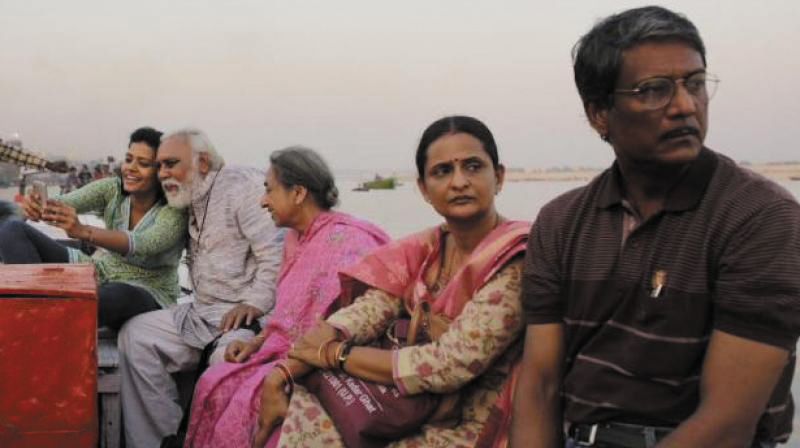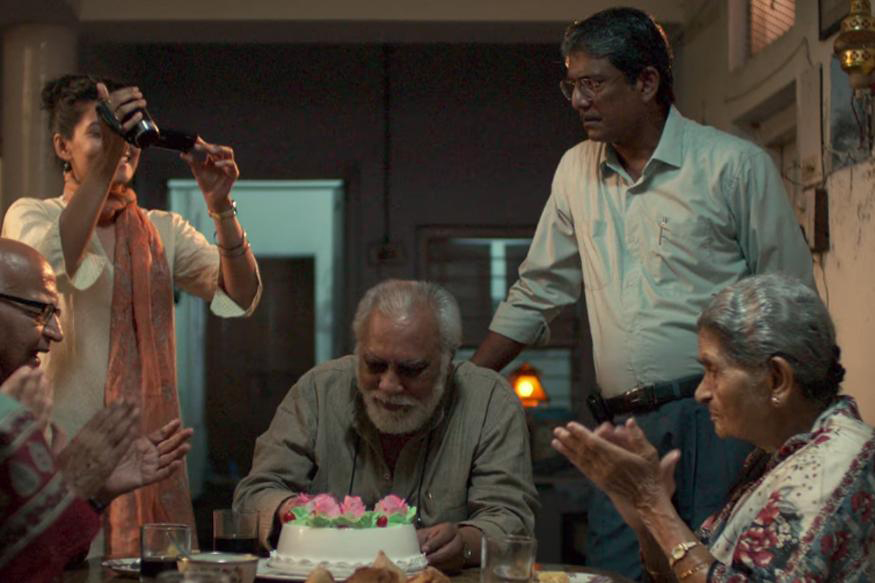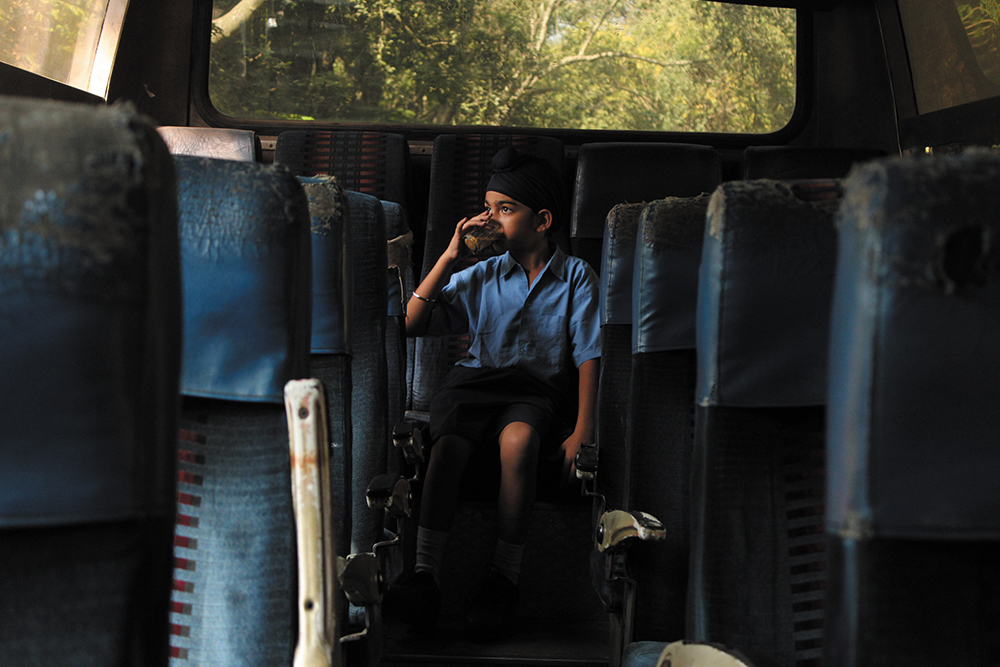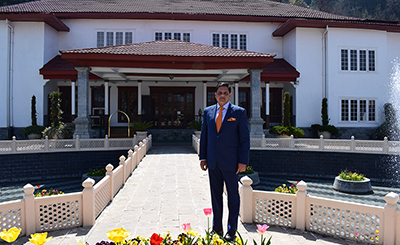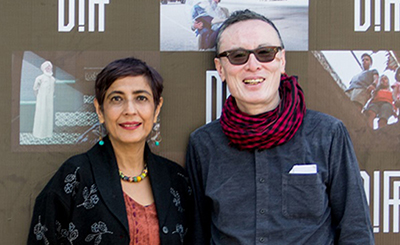Filmmaker Shubhashish Bhutiani, whose film Mukti Bhawan won the Special Jury Award at the 64th National Awards, talks about his journey, his training and craft
Filmmaker Shubhashish Bhutiani has made a mark in international film circuit in a very short span of time. His short film, Kush (2013), featuring Sonika Chopra, Shayaan Sameer and Anil Sharma, was on the list of 10 live action shorts competing for the final five nominations in the Oscar race of 2014. It also won the Orizzonti Award for the Best Short film at Venice Fest. Mukti Bhawan (2017) won the Special Jury Award (Special Mention) at the 64th National Awards. Besides, it received rave reviews at various international film festivals around the world.
Bhutiani started his cine journey at the School of Visual Arts in New York City where he made two short films while studying filmmaking. In Kush, set against the backdrop of the 1984 anti-Sikh riots, he showcased, with tremendous sensitivity, how the life of a Sikh boy gets impacted during a school trip. His debut feature film, Mukti Bhawan (internationally known as Hotel Salvation), portrays the relationship of an ailing father and his son who visits one of the guest houses in Varanasi where the dying wait for death.
Excerpts from an interview:
ATIF KHAN: When did you decide to become a filmmaker?
SHUBHASHISH BHUTIANI: I used to watch a lot of Hollywood and Bollywood classics as a child. My father, a filmmaker himself, used to bring international films at home which opened a new area of interest for me. As I grew up, I involved myself in theatre and writing which enhanced my creative skills. I still love to do acting. My first stint with direction happened when I directed a play called Peter Pan, in which around hundred children from my school participated. That process of direction stayed with me for so long and I realised much later that this is what I want to do in my life.
ATIF KHAN: And then you decided to join a film school?
SHUBHASHISH BHUTIANI: I thought there was no reason to study something which I was not interested in, so I decided to join the film school to learn the craft. I applied to a film school in New York and started making short films and learning more about cinema. The best part of studying in a film school lies in the fact that we are exposed to a lot of international cinema which we may be unaware of if we do not live around people from the film circuit.
ATIF KHAN: You were in your fourth year at the film school when you made the much-acclaimed short Kush?
SHUBHASHISH BHUTIANI: Yes, that was the fourth year of college when I was about to graduate from school and that was my thesis submission as well. Although I made the film when I was in college, the germination owed its genesis to my school when my Economics teacher told about his experiences during the 1984 anti-Sikh genocide. That story left a deep impression on me and stayed with me for six years. The story is set in the backdrop of the 1984 anti-Sikh riots and I am happy that it reached a wide audience outside India after its premiere at the Venice Film Festival where it won the Orizzonti award for the best short film.
Mukti Bhawan portrays the relationship of an ailing father and his son who visits one of the guest houses in Varanasi where the dying wait for death.
ATIF KHAN: Do you think a film school graduate has a creative edge over those who are self-taught?
SHUBHASHISH BHUTIANI: I think enrolling in a film school is a personal call and this cannot be asserted as a sole criterion to become a filmmaker. As for me, it taught me how to make films with no money, being resourceful, being smart about arranging things on time. It exposed to me to world cinema and world culture which helped me a lot in filmmaking. For those who want to do things on their own, there is no need of joining a film school. Everybody has a different journey and at the end of the day, creative people are creative people. There is no training to become creative. You can learn skills and to operate machines through your time at the film school, but creativity is your own understanding of the world. These days there are a lot of people who are self-taught as the knowledge is available all around and you just need to have a good story to tell.
ATIF KHAN: Tell us about your journey from the film school to the moment when you decided to make your first feature film, Mukti Bhawan.
SHUBHASHISH BHUTIANI: My journey from Kush to my last venture Mukti Bhawan is my quest for emotions. When the thought of a father-son relationship came to me, I strove to make the story rich in emotions. My belief kept me intact: the belief in the fact that it is all about empathy and people across geographical boundaries usually connect with pure emotion. I keep revisiting Varanasi to know the place better and my limited knowledge of that place made me more curious about things there. The whole process of knowing the place and building the characters organically was the best part of my journey.
ATIF KHAN: Can you elaborate on your process of writing the film? Does travel enrich the understanding about your characters? To what an extent are they the fragments of your imagination?
SHUBHASHISH BHUTIANI: The writing process is always a mixture of research and imagination. A lot of time goes in the process of writing and re-writing to make it better. It is an organic process as the story and characters grow with time. You make several versions with different endings and take whatever suits you. So, as a director, I work hard and leave the rest to the filmmaking process. I meet a lot of funny and serious characters during my travel and I keep revisiting them during the writing process. A lot depends on your imagination, but to get finer details, you have to rely on your research.
In Kush, set against the backdrop of the 1984 anti-Sikh riots, Bhutiani showcased, with tremendous sensitivity and empathy, how the life of a Sikh boy gets impacted during a school trip.
ATIF KHAN: Did your father shape your interest in learning the finer nuances of cinema since an early age?
SHUBHASHISH BHUTIANI: He helped me understand how the business of making films works, but at an individual level, I am a different person from my father. We are parallel, but not in the sense of who we are. We grew up differently and have different experiences altogether. I lived in a boarding school in Mussoorie since the age of nine. As I grew up, my father and I did not discuss cinema much. When I came back, both of us wanted to do films, but differently: he was doing advertising while I was making a film on salvation.
ATIF KHAN: What was your strategy in getting into the milieu of Varanasi?
SHUBHASHISH BHUTIANI: I heard a story of a son and the father who come to the place for dying and that intrigued me. When I reached there to witness the place myself, I saw many such stories and, at a point, every story seems connected as every other story has similar nuances. I was totally unaware of the place when I first went there as a traveller during my trip around the country and that helped me in spotting those smaller details which I would have skipped if I knew the place before. I did not complete my research for the film in one go, but I kept revisiting the place. I also started reading the local literature and publications from there which helped me a lot in getting to know the place. The film appeals to the audience globally because it is set in a place, which holds an important spiritual significance on the international map. But, I think, it is the relationship which is important in the film than the place itself.
ATIF KHAN: Do you have a spiritual connect with Varanasi?
SHUBHASHISH BHUTIANI: Yes, even though I did not go there as a child, but I feel a peculiar kind of belongingness to the place which is beyond description. Every time I visit the place, I always have to cancel the return ticket as I always stay longer than I initially plan. The people are so relaxed there and the food is amazing. I am obsessed about sitting at a chai shop and listening to political talk, jokes and gossip. The favourite part is sitting and enjoying the sound of evening Aarti which is too soothing for me.
ATIF KHAN: How was the experience of working with the crew which had someone like Adil Hussain, who is regarded as one of the best actors in the country?
SHUBHASHISH BHUTIANI: Filmmaking is a collaborative effort where each individual is important. I believe that more than hierarchy, the process of making good relationships on the sets matters. In the process, a filmmaker learns a lot and he also gives away as he has to instruct each individual on the sets. For me, the beauty of making Mukti Bhawan lies in the warm environment of good people and the exchange of ideas and suggestions which they used to do on the sets. I learnt a lot working with senior actors, including Lalit ji, Adil Hussain and Gitanjali. I think we have an amazing relationship now and are not just colleagues, but good friends.
ATIF KHAN: These days, a lot of films from India travel to film festivals around the globe. Do you think that the recognition at such festivals helps the film in India?
SHUBHASHISH BHUTIANI: The primary aim of a filmmaker is to show the film to different sets of people and getting the feedback from them. Low-budget films often do not get the attention which the commercial cinema enjoys so they often take the festival route to be able to release it in a market. International film festivals allow independent films to have an audience from different nook and corners of the world which strengthens the filmmaker’s confidence in the work. Also, since the films are reviewed by different critics around the globe, the film reaches out to an audience where it would not be able to reach if it’s released commercially. So, I agree that film festivals are important for independent films and the commercial success is also linked with film’s success at such festivals.
ATIF KHAN: How important is the distribution channel for the success of a film?
SHUBHASHISH BHUTIANI: Distribution and the marketing of a film go hand in hand. These aspects are extremely important for a film’s success. How you position a film and try to reach the right audience for that particular film is a challenge, but with social media, a new avenue has opened up. For films like Mukti Bhawan, you need distributors who believe in a movie and won’t use template strategies but find new ways to reach out to the audiences who would be interested a film like this one. At the end of the day, a film must stand on its own feet and the best way for a film to get seen is the word of mouth. But, again, we need an ecosystem (which existed in the past) that will give the necessary time to let the film grow. But the distribution landscape is changing dramatically and very rapidly. So, let us see what the future holds.
ATIF KHAN: How would you respond to Mukti Bhawan’s warm reception? Do you think films like this can also succeed commercially?
SHUBHASHISH BHUTIANI: I am overwhelmed by the response of the critics and the audiences. It’s an amazing feeling for me when people connect to the film and they share their own personal lives with me. I’ve had many people contact me or come up to me, telling me little anecdotes of their own family and what they thought of the film. At the same time, it’s been a huge learning experience as well, and whatever feedback comes my way I want to absorb and grow from here.
I think films like this can make money in India. These kinds of stories are our stories. I sometimes feel that the audience is underestimated and we are not able to reach as many people as we’d like for a variety of reasons. As far the monetary aspect is concerned, it is important to keep in mind that films like this now has a life beyond just traditional theatrical release; there are many other avenues for a film to find an audience — through satellite, digital streaming platforms and international sales. So, if you look at it in a wholesome way, I do believe that these films can make money.
